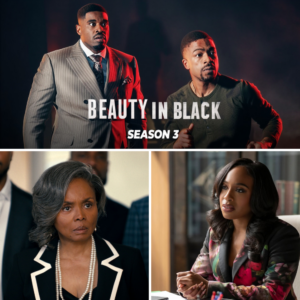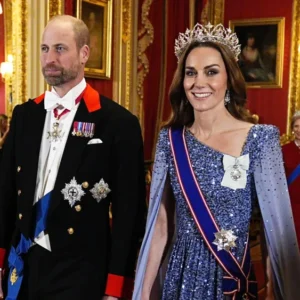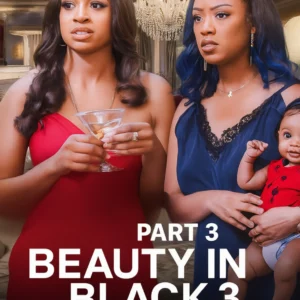Released in 1982, The Verdict stands as a towering achievement in courtroom drama, directed by the legendary Sidney Lumet and featuring one of Paul Newman’s most acclaimed performances. Adapted by David Mamet from Barry Reed’s 1980 novel, the film follows Frank Galvin, a washed-up, alcoholic lawyer in Boston who has squandered his once-promising career. Presented with a medical malpractice case by his friend and former partner, Mickey Morrissey, Frank initially sees it as a straightforward settlement opportunity. However, his journey evolves into a profound quest for redemption, supported by a stellar cast and enriched by unexpected plot twists. This article explores the film’s cast, content, and the narrative turns that elevate it to a classic.
The Cast: A Stellar Ensemble of Talent
Paul Newman anchors The Verdict as Frank Galvin, delivering a career-defining portrayal of a man teetering on the edge of despair yet capable of redemption. At 57, Newman embraced the role of a disheveled, boozy attorney with a weathered face and weary eyes, a stark contrast to his earlier matinee-idol image. His performance earned him a Best Actor Oscar nomination, showcasing a raw vulnerability that resonates deeply. Newman’s commitment was evident when he insisted on revealing the character’s flaws, a decision he grappled with personally during rehearsals, as Lumet later noted.
Charlotte Rampling plays Laura Fischer, Frank’s love interest, bringing a subtle intensity to her role as a woman entangled in the case’s complexities. Her poised yet enigmatic presence adds a layer of intrigue, with her performance hinting at hidden motives that unfold later. Jack Warden, a Lumet regular, shines as Mickey Morrissey, Frank’s gruff but loyal former partner who hands him the case. Warden’s naturalistic style grounds the film, offering a counterpoint to Newman’s turmoil.
James Mason delivers a chilling performance as Ed Concannon, the slick, unethical defense attorney representing the hospital and the Archdiocese of Boston. Nominated for Best Supporting Actor, Mason’s portrayal of the “Prince of Darkness” exudes charm and menace, making him a formidable adversary. Milo O’Shea, as Judge Hoyle, embodies judicial bias with a stern demeanor, adding tension to the courtroom scenes. Lindsay Crouse, in a pivotal role as Kaitlin Costello, the surprise witness, brings emotional weight with her testimony, while supporting actors like Edward Binns (Bishop Brophy), Julie Bovasso (Maureen Rooney), and Wesley Addy (Dr. Towler) enhance the film’s rich tapestry. Even a young Bruce Willis appears briefly as a courtroom extra, marking an early screen moment.
Lumet’s direction fostered a collaborative environment, with Newman and the cast rehearsing extensively to capture the story’s grit. The chemistry between Newman and Mason, in particular, crackles with rivalry, while Crouse’s scene-stealing moment during cross-examination highlights the ensemble’s strength. This cast, combined with Lumet’s actor-centric approach, transforms The Verdict into a character-driven triumph.
Content: A Deep Dive into Redemption and Justice
Set in a moody, autumnal Boston, The Verdict opens with Frank Galvin at his lowest point—drinking beer for breakfast, playing pinball, and scavenging for clients at funerals. A once-respected lawyer derailed by alcoholism and a rumored disbarment scandal, Frank is a shadow of his former self. Mickey Morrissey (Warden) offers him a medical malpractice case involving Deborah Ann Kaye (Susan Benenson), a woman left comatose after a botched delivery due to hospital negligence. The case seems like an easy win, with a substantial settlement on the table from the Catholic hospital, backed by the Archdiocese.
Frank’s initial apathy shifts after visiting Deborah, whose vegetative state stirs his conscience. Rejecting the settlement, he resolves to take the case to trial, driven by a desire to restore his self-respect and deliver justice. This decision pits him against Concannon (Mason), a high-powered lawyer with unlimited resources, and Judge Hoyle (O’Shea), whose bias favors the defense. Frank’s investigation reveals tampered evidence, including a falsified admission form, but his lack of preparation and personal demons—exacerbated by his romance with Laura (Rampling)—leave him vulnerable.
The film’s courtroom sequences are its heartbeat, blending Mamet’s sharp dialogue with Lumet’s restrained direction. Cinematographer Andrzej Bartkowiak’s muted, earthy tones and Johnny Mandel’s sparse score amplify the somber mood, while long takes, like the nearly four-minute scene of Frank’s panic over a missing witness, heighten the tension. The Verdict transcends the genre by focusing on Frank’s internal struggle rather than courtroom theatrics, exploring themes of redemption, the fallibility of justice, and the human cost of institutional power. With an 88% Rotten Tomatoes rating and a 77/100 Metacritic score, critics laud its emotional depth, though some note its slow pace as a minor flaw.
Plot Twists: Unraveling the Narrative
The Verdict’s narrative is punctuated by plot twists that keep viewers on edge, subverting expectations of a predictable legal drama. The first twist emerges when Frank discovers the case’s complexity. Initially a routine settlement, it becomes a battle against a cover-up, with the hospital and Archdiocese suppressing evidence of Dr. Towler’s (Addy) negligence. This revelation, hinted at through Frank’s dogged investigation, transforms the story into a David-vs.-Goliath struggle, challenging his resolve.
The second twist involves Laura Fischer. As Frank’s relationship with her deepens, Mickey uncovers that she is a plant, hired by Concannon to spy on Frank and sabotage his case. This betrayal, revealed mid-trial, shatters Frank’s trust and forces him to confront his naivety, adding a personal stakes to his professional fight. The scene where Mickey finds evidence in Laura’s purse is a quiet yet devastating moment, shifting the film’s tone to one of isolation.
The climactic twist occurs in the courtroom with Kaitlin Costello’s (Crouse) surprise testimony. Called as a last-ditch witness after Frank’s expert, Dr. Gruber, vanishes, Kaitlin reveals that Dr. Towler ignored the admission form and coerced her to falsify it post-incident. This bombshell undermines the defense, but Concannon’s attempt to discredit her with a legal precedent—procured mid-trial—nearly derails Frank. The judge’s initial ruling against admitting the photocopy heightens the drama, only for Frank’s impassioned closing argument to sway the jury, delivering a verdict in his favor.
The final twist is subtle yet poignant. After winning, Frank returns to his apartment, answering a ringing phone 14 times before sitting with a drink—or possibly coffee, as Newman clarified. This ambiguous ending leaves his redemption open-ended, suggesting a fragile victory tinged with ongoing struggle. Critics debate the cup’s contents, but the scene’s power lies in its restraint, mirroring Frank’s uncertain future.
Reception and Legacy
Premiering on December 8, 1982, The Verdict earned five Oscar nominations, including Best Picture, Best Director, and Best Actor for Newman, though it won none, losing to Gandhi. Its box office success and critical acclaim—praised by Roger Ebert and Janet Maslin—have cemented its status. Ranked 254th by Empire and 23rd by Rate Your Music for 1982, the film’s influence endures, inspiring legal dramas with its focus on character over spectacle. Lumet’s direction and Mamet’s script, refined after rejecting sanitized drafts, highlight its authenticity, while Newman’s performance remains a benchmark for actors tackling flawed heroes.
Conclusion
The Verdict is a masterful blend of exceptional casting, rich content, and surprising plot twists that elevate it beyond a typical courtroom drama. Paul Newman’s Frank Galvin, supported by a remarkable ensemble, navigates a journey of self-discovery and justice, guided by Sidney Lumet’s meticulous direction. From Laura’s betrayal to Kaitlin’s testimony, the film’s twists keep audiences engaged, culminating in a bittersweet resolution that lingers. A poignant exploration of redemption and morality, The Verdict remains a timeless classic, its impact felt in cinema and beyond.





